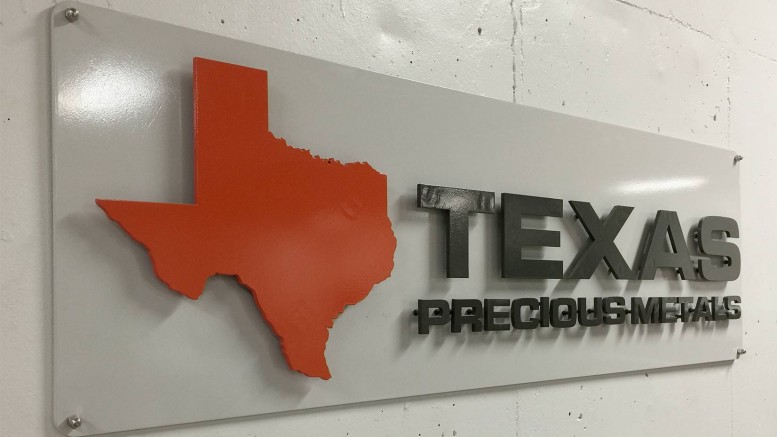When the average person thinks about Texas, a few words and phrases quickly come to mind: old-school, wealthy, isolationist, entrepreneurial and open-carry.
Happily we can roll all these elements into one perfect Texas story for goldbugs: the news that the state government is on track to build its own gold depository to store the state and anyone else’s bullion on good Texas ground, separate from the federal government’s massive hoard and greedy New York banks.
It started a little over a year ago, when Republican Texas Governor Greg Abbott signed a bill into law in Austin to “repatriate $1 billion of gold bullion from the Federal Reserve in New York to Texas.”
The bill was written by Rep. Giovanni Capriglione (R-Southlake) and sponsored in the Senate by Lois Kolkhorst (R-Brenham).
In the original wording of the bill, the government’s finance code would be amended to create a “Texas Bullion Depository” that would be an agency of the state in the Office of the Comptroller, directed by an administrator appointed by the comptroller with the advice and consent of the governor, lieutenant governor and senate.
The depository would “hold certain bullion and specie acquired by the state or a political subdivision of the state; could receive and hold such deposits for private entities; and would use depository agents … to conduct retail transactions on behalf of the depository with current and prospective depository account holders.” Deposits to the depository and related assets would not be subject to legislative appropriation.
Furthermore, the comptroller would establish procedures and requirements for the depository and depository agents for taxable gains and losses from depository transactions, and could establish fees, service charges and penalties to be charged to a depository holder, with receipts deposited to the state’s general revenue fund.
The law took effect Sept. 1, 2015.
Under the law, the comptroller would use independently managed firms and institutions licensed as “depository agents” to act as middlemen to conduct retail transactions on behalf of the depository. The fees to use the depository would be set at levels “sufficient to cover the costs of implementing the provisions” of the law.
The wholesale precious metals dealer Texas Precious Metals was one local firm that responded to state Comptroller Glenn Hegar’s informal request for proposals to build a depository. According to the Dallas Morning News, Texas Precious Metals chief operating officer Tarek Saab (a former contestant on Donald Trump’s The Apprentice) has presented a plan to build a $20-million, 47,000-square-foot facility with 12-inch reinforced concrete walls and roof able to withstand 395,000 lb. of weight — to be built and operated without taxpayer money on land it owns in Shiner, 250 miles south of Fort Worth.
Meanwhile the iconic U.S. armed transport firm Brink’s says a new building is unnecessary, because the depository could simply use its excess secure-storage areas in its existing facilities in Texas.
Anthem Vault of Las Vegas is pitching its own plan, calling for “multiple vaulting locations throughout Texas to enable all Texans access to their bullion within a reasonable distance from their homes,” and an offer to create a network of “coin shops and retail storefronts” to accept deposits to the state depository.
The comptroller is expected to issue a more formal and detailed request for proposals by year-end, with observers expecting some kind of depository up and running perhaps as early as 2017.
One large potential client for the depository would be the University of Texas Investment Management Co., which had $600-million worth of gold bullion stored at HSBC Bank in New York — a fraction of the US$24-billion endowment it manages for the University of Texas. Last July, a spokesperson for the company told the Texas Tribune that it would consider moving the gold to Texas if the storage fees were cheaper than the US$650,000 in annual fees it currently pays.
The state of Texas reportedly pays US$1 million per year in out-of-state storage fees for its gold, and there is appetite to keep that revenue stateside.
Readers can keep up with news on the depository at the unofficial website www.texasbulliondepository.com, which is run by a blogger.




Be the first to comment on "Editorial: Texas to build its own gold depository"